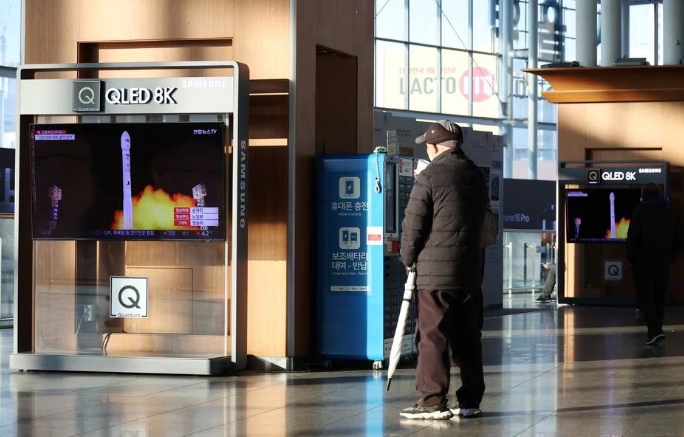South Korea has concluded that North Korea, thanks to Russian support, put a spy satellite into orbit this week, ABC News reports.
Officials said Thursday that it would be known by early next week whether it was functioning properly.
The satellite launch has heightened tensions in the region, with both Koreas threatening to tear up an earlier reconciliation deal and take hostile action on their heavily armed border.
After two failed launches earlier this year, North Korea said it had successfully placed the Malligyong-1 satellite into orbit on Tuesday night. South Korea’s military confirmed the satellite had been put into orbit, but it emphasised that it would need a few more days to test its performance.
South Korea’s intelligence agency told lawmakers in a closed-door briefing Thursday that Russian assistance was the main reason for the successful launch, according to lawmakers present at the meeting.
The National Intelligence Service cited Russian President Vladimir Putin’s earlier pledge to support North Korea’s satellite programme. The service said it had also received information that North Korea had given Russia the design and other data for the new Chollima-1 rocket used in two previous failed launches. Lawmaker Yoo Sang-bum, who attended the NIS briefing, said the intelligence received indicates that Russia has returned its analysis of North Korean data.
South Korean Defence Minister Shin Wonsik told a separate parliamentary committee on Thursday that Russia appears to be providing technological assistance to North Korea’s satellite programme. All three launches used the same satellite and rocket. Two previous attempts in May and August were unsuccessful due to technical problems with the rocket.
Speculation that Russia is providing technological support for North Korean satellite and other programmes emerged after North Korean leader Kim Jong Un’s visit to Russia. The summit between Kim Jong Un and Putin was held at Russia’s main cosmodrome.
North Korea has issued a statement that its Malligyong-1 satellite will begin its official mission on 1 December. However, it said the satellite had already transmitted images of military sites in the US territory of Guam and that Kim had seen them. North Korea has not released those images.
Many foreign experts are sceptical about the satellite’s ability to take high-resolution images and its military significance. Following the discovery of debris from the first failed launch attempt, South Korea’s military said the satellite was unsuitable for military reconnaissance.
Defence Minister Shin said he feared Russia could help North Korea produce higher-resolution satellite photos. He believes authorities in South Korea, the US and Japan will be able to determine whether the satellite is functioning properly as early as this weekend or early next week.
